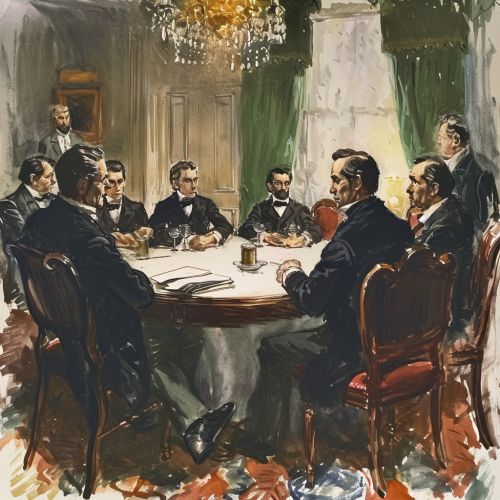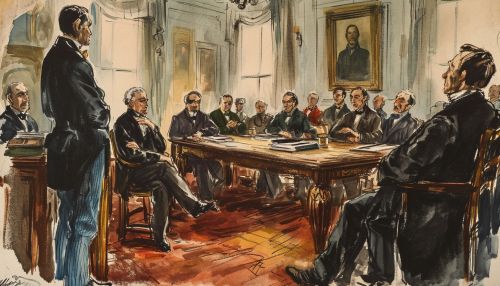Republican Party
Origins and Early History
The Republican Party, also referred to as the GOP (an acronym for Grand Old Party), is one of the two major contemporary political parties in the United States, the other being its historic rival, the Democratic Party. The party was founded in 1854 by anti-slavery expansion activists and modernizers, with its first president being Abraham Lincoln, who led the United States through its Civil War.


Ideological Evolution
The Republican Party's ideology has shifted over time, reflecting changes in the social and economic climate of the United States. The party originally championed classical liberal ideas, such as anti-slavery and economic reform. By the 20th century, it had transformed into a party supporting business, with leaders such as Theodore Roosevelt and Dwight D. Eisenhower espousing progressive and moderate policies respectively. In the more recent decades, the party has adopted more conservative positions on issues such as tax cuts, deregulation, and opposition to labor unions.
Modern Republican Party
Today, the Republican Party is generally associated with right-wing and conservative ideologies. It tends to favor a laissez-faire economy, low taxes, and limited government intervention. The party is also known for its strong stance on national defense and its support for traditional values. However, there is a wide range of ideological beliefs within the party, from libertarian-leaning members to those advocating for social conservatism.
Electoral History
The Republican Party has had a significant impact on American politics since its inception. It has produced 19 of the 46 U.S. presidents, including Abraham Lincoln, Theodore Roosevelt, Dwight D. Eisenhower, and most recently, Donald Trump. The party has also held a majority in one or both houses of Congress for numerous terms throughout its history.
Influence on Policy and Legislation
The Republican Party has been instrumental in shaping American policy and legislation. From the abolition of slavery under Lincoln to the deregulation policies of the late 20th century, the party has left a lasting impact on the country. It has also played a significant role in foreign policy, with Republican presidents often taking a strong stance on national defense and international relations.
Criticisms and Controversies
Like any political party, the Republican Party has faced its share of criticisms and controversies. These have ranged from policy disagreements to scandals involving party members. However, it is important to note that these issues are often complex and multifaceted, reflecting the diverse range of opinions and beliefs within the party.
Future Directions
The future of the Republican Party is a topic of ongoing debate. Some believe that the party needs to return to its roots and focus on fiscal conservatism and limited government. Others argue that the party should embrace more moderate positions to appeal to a broader demographic. Regardless of the direction it takes, the Republican Party will undoubtedly continue to be a major force in American politics.
